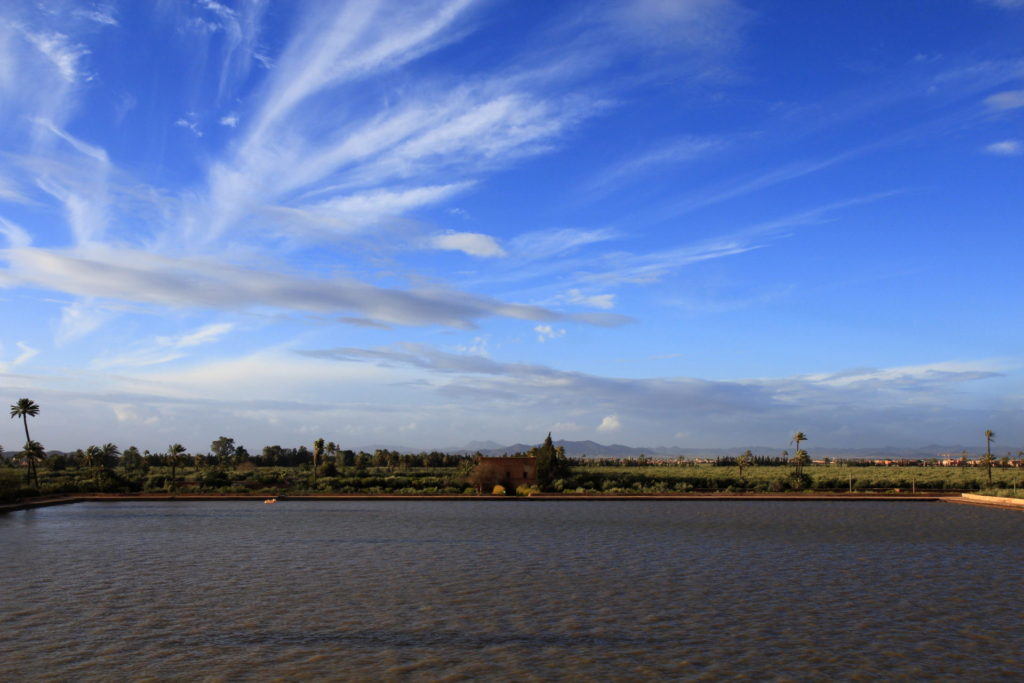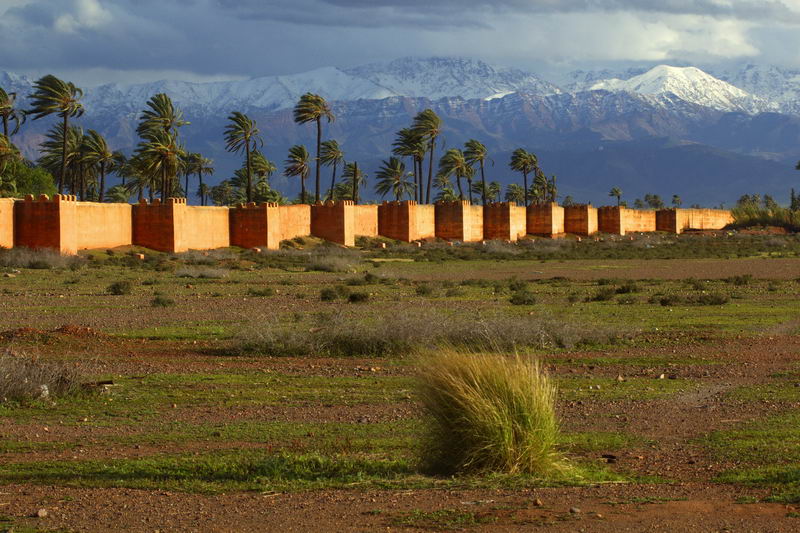Articles, Communications
Descriptions of Agdal of Marrakech from History
Article author: FUNCI
Date of publication of the article: 26/12/2014
Year of publication: 2011
Article theme: Cooperation, Nature, Sustainability.
For the comprehensive restoration of the royal estate Agdal of Marrakech, the team of FUNCI specialist shave in hand an in-depth study of different branches: the archaeological, architectural, hydraulic, botanic and historic.
Hamid Triki, the historian of the team, has translated some written testimonies from recent days.
This brief reference to al-‘Umari, XIV century author, gives us an idea of how Agdal was in Almohad period. Thus the so-called Buhayra describes the estate as being rich with ‘magnificent constructions, immense buildings and the pool which is beyond compare’.
But perhaps the following is the most attractive and detailed description, found in the annals of the Saadi dynasty, dictated by ‘Abd al-Azizibn Muhammad al-Fishtali (1549-1621):
This park (rawd) of al-Massara (…) has walls of the width of the kasba and of al-Saliha. It is out standing because of its huge size and it unrolls a blanket of Green extending to the horizon; it is so immense that the best tracing horses would find it difficult to cover. The perfect and symmetrical order of the cultivated plots (hada’iq) gives way to vines, pomegranate trees and palm trees, in pair so grouped by species, planted so that they look at each other. There are vegetable patches (yannat) separated up and down by borders of aromatic plants and trees: myrtles, lemon trees, elder trees (yabur), rose bushes, nisrin, jasmine and a vast Wood of olive trees that supplies the whole region. When you get to the great pool (al-birka al ‘udmà) at the highest point and like a sea full of waves, you see an immense panorama which is marvellous to be hold due to its great expanse and width.
(…) As regards the great palace (al-biniya al-‘udmà), its vision is of legendary charm. It rises on the side of the great pool and is crossed by a canal (nahr) which feeds into it, comparable in this way to the ocean in which rise the waves”.
Finally we will reproduce this note made by the famous Maghreb chronicler al-Maqqari, of the XVI-XVII centuries:
“For me (…) the Masarra rises above all the gardens (….), taking a bath in its pool is far more pleasant than doing so in the Nile or the Genil.”



